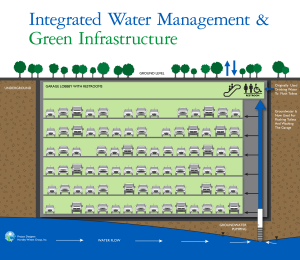Welcome to Boston’s Premier Parking Facility!
In the heart of Boston’s financial district, located under the landmark Norman B. Leventhal Park, this full-service parking facility is both convenient and pleasant to use. Enter on Pearl Street or Congress Street. From the gracious main lobby with its high-quality finishes, fresh flower arrangement and efficient cashier services, to the spacious well-lit parking levels with easy-to-follow directional signs and colorful graphics, you will find The Garage At Post Office Square to be Boston’s most convenient and enjoyable place to park!

Myhfid Benouallad, our Garage General Manager, can be reached in the Garage office weekdays.
Jayne’s Flowers has a cheery flower stand in our Lobby, from 11am to 6pm Tuesdays through Thursdays.
Dirty Windshield? Please use our windshield washing station on our Lobby level near the tire inflation station.

While many businesses were hibernating during the pandemic, we installed 30 more Level 2 Electric Vehicle charging stations, bringing our facility total to 41 stations! Our stations are part of the Chargepoint network. There are eleven on the Lobby Level and six near the elevators on each of Levels 1-5. Electricity costs $.25 per kWh at the stations. Regular parking rates apply as you exit the Garage. In order to provide access to the stations, EV’s must be moved to regular parking spaces once fully charged. In May 2025, 439 unique drivers used our stations for 1,213 charging sessions! We have avoided more than 943,827 kg of greenhouse gasses, the equivalent of planting more than 24,201 trees and letting them grow for 10 years.
Post Office Square is mitigating 100% of its electricity footprint with renewable energy under a 25-year Power Purchase Agreement, signed in 2016, partnering with MIT and Boston Medical Center, to purchase all of the output from Summit Farms, a solar project in North Carolina. It was the largest renewable energy project ever built in the US through an alliance of buyers and in aggregate, the expected 146 gigawatt-hours of emissions-free power per year will result in the abatement of 119,500 metric tons of carbon dioxide emissions — the equivalent of removing 25,250 cars from the road. Learn more about the project here.
To conserve drinking water, The Garage at Post Office Square’s Integrated Water Management & Green Infrastructure system uses reclaimed groundwater to flush our toilets.
The Garage at Post Office Square pioneered several novel and award-winning construction technologies. As part of our sustainability effort to conserve resources and enhance efficiencies, Friends of Post Office Square invested in an innovative system which allows the Garage to use much less water, without minimizing our first-class building operation.
The seven-level Garage extends 80 feet beneath the street to a depth where groundwater saturates the soils. In order to prevent flooding, groundwater is collected in a deep well beneath Level 6. Since the Garage opened in 1990, excess groundwater in the well has been pumped into Boston’s combined stormwater/sewer system.
Our new groundwater reclamation system allows us to re-utilize the groundwater to flush the toilets and wash the floors in the Garage, reducing the amount of high-quality drinking water the Garage uses in its operation. We are saving thousands of gallons of drinking water every week, water that is transported to Boston all the way from the Quabbin Reservoir in Western Massachusetts. By using the groundwater before it is pumped off-site, we are also dramatically reducing the Garage’s sewer output.
Our project conserves drinking water, recycles the local groundwater that is pumped for dewatering, reserves treatment capacity at the MWRA treatment plant at Deer Island, and reduces our annual water and sewer bills by more than $10,000. The design is an example of Integrated Water Management and Green Infrastructure – a new way of thinking about our water resources. It focuses on sustainability of resources: using local sources of water and re-thinking our use of limited high-quality drinking water for non-potable purposes.





